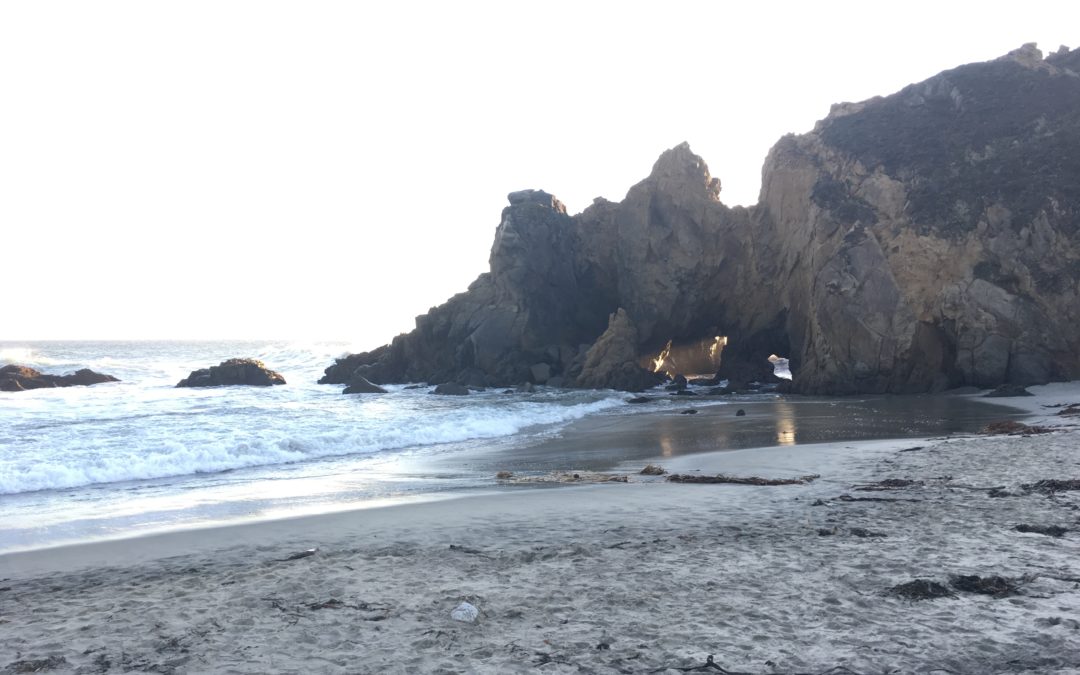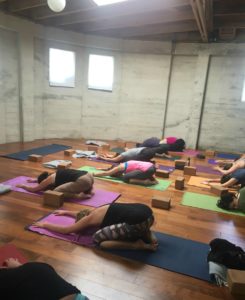Self Compassion Practices for Imperfect Beings
But I had a frustrating experience as a new paddler. It was the first time in a long time that I had not felt “good enough” at something. I was trying my best to be okay with this, because I know I have perfectionistic tendencies, and I have WORKED on this. Believe me.
What bothered me was that I felt like I didn’t have much permission to be “not okay” as a beginner. I got really angry inside – both at the three coaches in the boat (plus this other guy who called out to me from HIS canoe to criticize my form). And I got angry at myself because I wasn’t able to be okay at sucking at this.

There were parts of canoeing that were pretty meditative and lovely and nice. Cultivating attention on the paddle in front of you to sync up your movements with the other paddlers in my canoe was definitely focusing and had the effect of pulling me constantly into the present moment.
I just was not able to get the right form that our coaches were asking for so quickly, and I felt a bit alone in my failings and imperfections.
And look, I did not sign up for this class with the goal of joining the racing team. I just wanted to enjoy being on the water. I have enough stress in my life that I don’t need a recreational canoeing class to be stressful.
So as I paddled and tried my best, I started to really beat myself up inside. The inner critic was loud and clear. I was frustrated, mostly with myself.
And then I remembered what I have learned from Christina Sell on practicing self-compassion. That if we are always knocking it out of the park, we never get to practice being compassionate with ourselves.
So I tried my best to be gentle with myself and kind and to help myself calm down.
This is yoga, off the mat.
I was not very good at calming down completely. I did not hide my annoyance very well. I felt like the coaches just needed to lay off a little. I also felt that I probably needed to develop a thicker skin. But I did STOP and pause and made an effort of practicing being compassionate and kind with myself. In that moment, I caught myself a little bit. Step one.
Developing the Endurance to be Imperfect
As a new paddler, I was reminded what it’s like to be a beginner and to feel imperfect at something.
As a yoga teacher, maybe I have become sensitive to this because I always have new yogis coming to class. And often I invite students to try something and they try and don’t always succeed and that’s okay. More than okay. There is an awareness in body perception that takes awhile to come, as well as all the variations in neuromuscular patterning, skeletal variation, level of experience, and all the rest of it.
I need to be continually aware and sensitive to this, to not forget how hard it is to learn something new.
I subbed a class over the weekend, and a woman came in a little late and set up two mats, one for her and one for her daughter. She whispered to me before her daughter came in, “This mat is for a 12 year old. We are trying to win her over to yoga.”
Cool.
Remembering what I had gone through on my outrigger canoe with my coaches, I kept a watchful eye on this 12-year-old, but I basically left her alone. I came over to her one time to encourage her gently to open up a little more with her top shoulder in Trikonasana. But you know, she was just figuring things out.
Like many beginners, especially young people, she didn’t have a lot of control or awareness of where her body was in space. And that will come. It takes awhile.
We have to do things slowly, taking on a little at a time. To be patient.
I’ve watched students sort it out – very quickly really. Withing 4-5 months of attending weekly yoga claases, I’ve watched students build SO much body awarness and breath awareness and an ability to go inside themselves and really get in tune. But this doesn’t happen in their first 90-minute yoga class and not in the 2nd class. In the beginning, they are just trying to figure out how to stay on their mat, how to inhale and exhale, where their hands and feet go. The basics. Asking them to do something specific with their left outer hip is most likely just not going to mean anything to them for awhile.
In the words of B.K.S. Iyengar, “A sign of an intermediate student is one who can hold a bad pose for longer.” We have to have time to sort things out, to build the endurance, even if it IS bad form. Then we refine, refine, refine.
As we practice, we start to connect our behaviors ON the mat to our tendencies OFF the mat.
I know that my tendency is to try to be good at things. I like to be competent. When I’m not, I have a tendency to quit.
One of our coaches in the canoe said something like, “When it gets hard, remember that you are doing this not just for you, but for your team. They are counting on you.”
In an outrigger canoe, you are one of six arms of a creature that is moving together.
So it’s more than you.
But in the beginning, it can feel like it’s just you. That you’re not good enough.
It helps to remember that you’re NOT alone in your suffering. There are other people on the planet who also suffer as you do. Maybe that suffering comes from not feeling good enough, or maybe it’s about physical pain or a trauma with a loved one, or not being able to make ends meet, or being mentally or physically abused. The list of suffering goes on, and it’s long. And you’re not alone. Our imperfections and the imperfections of our lives can tie us together instead of splitting us apart.
I did not end up going back to the canoe class. Not because I didn’t want to. I know that my tendency is to avoid, so I was actually very motivated to go back and see how it went. But a family emergency that was of far greater importance than me not being good at paddling came up, and let me tell you, the lessons of self-compassion were very well served as we navigated through this suffering.
However, I had already received the lesson of being compassionate to myself as a beginner paddler. It was a reminder to me that I need to continue to practice self-compassion, and that these tools can give me a way to reach beyond perfectionistic tendencies and toward self-acceptance and love.
My PAUSE in the canoe helped me recognize how I was feeling and to offer kindness to myself. And then later on, I was able to really SEE this new 12-year-old yoga student in a new light and offer compassion and space to her. And then I was able to offer myself compassion when my family needed it, and to give love and acceptance back to my family.
Self-Compassion Meditation and Practices
As part of a training I did with Christina Sell and Gioconda Parker last Spring, we used a daily Self-Compassion Meditation from Dr. Kristin Neff, a Psychology Professor in Austin, TX.
Dr. Neff’s research shows that the effect on brain waves of TWO minutes of self-compassion practice is equal to 20 minutes of meditation, and is associated with decreased levels of stress and mental health issues.
Self-compassion is different from self esteem; while self esteem requires us to feel good about ourselves, self-compassion picks us up when we fail or recognize our imperfections. Dr. Neff says it all in her TEDx Talk, which you can watch below.
- Acknowledge how you’re feeling
- Remember that suffering is a shared human experience – you’re not alone in how you feel
- Acknowledge your somatic experience (how you feel physically, and let your body experience this without fighting it)
- Physically place a hand on the body in a place where it feels nourishing (example: hand on the heart)
- Offer yourself compassion and unconditional love
- Give yourself a spacious moment to actually receive that love and compassion from yourself
Self Compassion Meditations and Other Resources
Check out Dr. Neff’s website on Self Compassion, where she has TONS of videos, guided meditations, and practices to cultivate self-compassion. The Compassionate Body Scan meditation is excellent.
If you’re looking for more resources on self-compassion, check out these two books, Self Compassion by Dr. Kristen Neff and the second, Radical Acceptance by Tara Brach (just awesome stuff…I’m in the middle of this one now). I’m digging in deep to this work, and I hope you do too. It’s good stuff.





 Empowering women who are 40+ to install movement habits that are nourishing, strengthening, and approachable for a truly calm and connected life.
Empowering women who are 40+ to install movement habits that are nourishing, strengthening, and approachable for a truly calm and connected life.
Wow, what a great human experience! Thank you for being real and open in sharing this! Miss you lots! Xo
Oh, glad you liked it, Kelly!! It’s hard to tell the truth sometimes about this stuff, but I really think it’s important to work on this stuff. I miss you tons too!! Looking forward to seeing you (hopefully) this December in St. John’s!!! Big love! xoxo